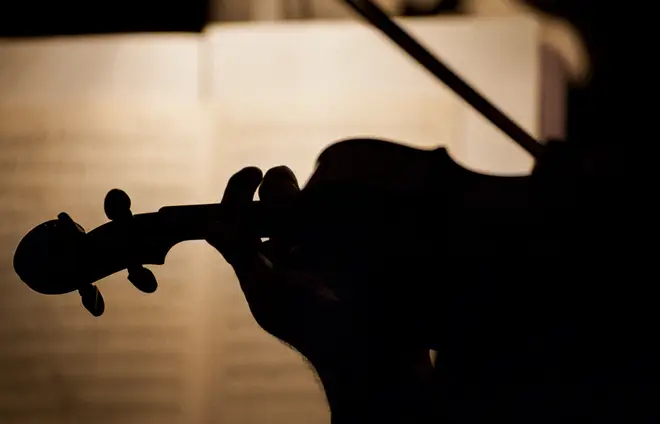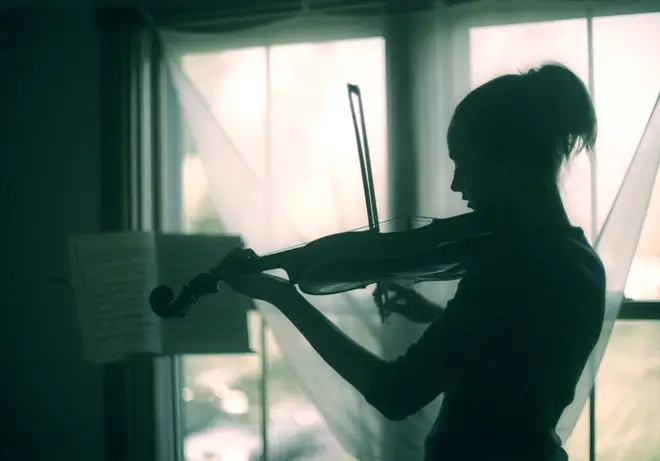On Air Now
Early Breakfast with Lucy Coward 4am - 6:30am
23 October 2019, 00:01 | Updated: 23 October 2019, 18:18

48 per cent of UK musicians have experienced sexual harassment at work, with a staggering 85 per cent of those claiming not to have reported it due to “the culture of the industry”.
Almost half of musicians (48 per cent) in the UK music industry have experienced sexual harassment at work, according to new research undertaken by Musicians’ Union.
Furthermore, a staggering 85 per cent of respondents claim not to have reported the sexual harassment they’ve experienced due to “the culture of the industry”.
Two thirds (61 per cent) of musicians surveyed feel they are at risk because they work on a freelance basis – a stark figure, considering 90 per cent of the Musicians’ Union’s members work freelance.
Read more: Plácido Domingo leaves Met Opera amid sexual harassment accusations >
“I reported sexual harassment by a high-profile individual to a major employer in the industry,” an anonymous respondent tells the Union. “I understand I was one of ten women making reports about the same individual and yet no action was taken as far as I’m aware.
“We are freelance musicians and the incidents occurred when we were performing on tour. I was told this was just ‘lad culture’ by the person investigating my complaint. No wonder such a high proportion of issues go unreported.”
The Musicians’ Union is calling for the government – via this petition – to extend all protections relating to discrimination and harassment in the Equality Act 2010 (which currently protects individuals in workplaces) to freelancers.
Just one in five (19 per cent) of freelance survey respondents claim the contracts they work under include policies or procedures to deal with incidents of sexual harassment.
The research was conducted by the Musicians’ Union from 17 to 25 September 2019 with 725 nationally representative musicians. 336 respondents identified as male and 379 were female. It has not been revealed what proportion of respondents who have experienced sexual harassment (the 48 per cent) identified as female or male respectively.

When asked why they didn’t report harassment, the sample group cited workplace culture (55 per cent), followed by fear of losing work (41 per cent), expectations that the issue would not be handled appropriately (32 per cent) and fear of not being believed or taken seriously (27 per cent) as main reasons.
“We are aware of far too many cases of talented musicians, particularly young or emerging artists, leaving the industry altogether due to sexism, sexual harassment or abuse,” says Deputy General Secretary of the Musicians’ Union, Naomi Pohl.
“Many musicians who have gone public with their story are now being taken to court for defamation – evidence of the situation we’re dealing with. Survivors are often unable to speak out because the consequences for their career or personal life are devastating. In most cases we’re aware of, the survivor ends up leaving the workplace or the industry and there are very few consequences for the perpetrator.”
As well as ratifying protections for freelancers in the Equality Act 2010, Musicians’ Union is recommending that the government introduces a mandatory duty for workplaces to take reasonable steps to protect people from harassment and victimisation, as well as a statutory Code of Practice to specify the steps employers should take to prevent and respond to sexual harassment.
In 2018, Musicians’ Union set up SafeSpace, an email account for anonymously reporting sexual harassment, abuse, bullying and discrimination in the music industry. 95 per cent of reports were sent in by women, according to a representative of Musician’s Union.
Ms Pohl continued: “The data released today exposes the true extent of the problem – and, ultimately, we are eager to work with the government to better protect freelancers.”
If you’ve been affected by sexual harassment, abuse, bullying or other discrimination in the music industry, visit the Musicians’ Union’s dedicated advice hub.
Visit www.musiciansunion.org.uk to find out more.